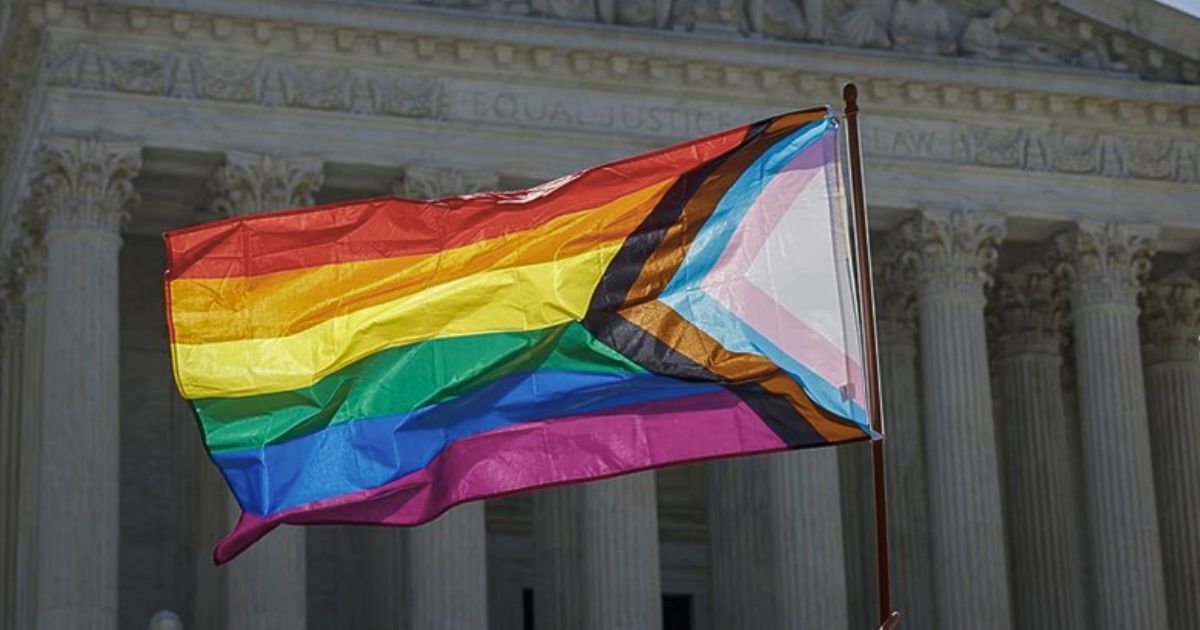Once upon a time (in the 1970s, to be precise), conversion therapy meant electric shocks for teens who admitted they were gay. Fast-forward to 2025, and the technique has evolved – unfortunately, not gone extinct. Now, it’s mostly talk therapy, still often tinged with religious overtones, all in the name of “changing” someone’s sexual orientation or gender identity. To the medical community, the idea’s about as scientifically sound as phrenology.
The American Psychological Association, the Psychiatry Association, and every reputable mental health group say it’s ineffective and actively harmful, jacking up suicide rates, depression, anxiety, and later-life instability for those subjected to it. But then here we are, with the Supreme Court once again trying to overturn hard-won LGBTQ+ rights. Does a therapist’s right to free speech get in the way of states like Colorado’s bans on licensed experts offering conversion therapy?
Enter Kaley Chiles, the licensed therapist who’s challenging Colorado’s conversion therapy ban. Chiles argues that the 2019 law cramps her counseling style (and, by extension, her First Amendment rights) because it forbids her from steering clients (minors!) away from same-sex relationships or nudging them toward “aligning” gender identity with biological sex. She’s sued 16 state officials, lost at the circuit level, and appealed all the way to the Supreme Court.
Not to be outdone, the conservative Alliance Defending Freedom (ADF), the legal group famous for getting Roe v. Wade overturned and winning the right for Christian bakers to refuse LGBTQ+ wedding cakes, is backing her all the way. On Oct. 7, Chiles v. Salazar will pit freedom of speech against public health. If the Supreme Court rules in her favor, conversion therapy bans could vanish across 23 states and D.C., leaving LGBTQ+ youth exposed to practices professionals have spent half a century trying to banish.
Will the UK’s plans to ban ‘gay conversion therapy’ succeed? https://t.co/sm7TcNN9Tq pic.twitter.com/5tRVxyAJvD
— New Scientist (@newscientist) July 8, 2018
Here’s where things get legally messy. Advocates argue that counseling is a regulated medical practice, not freewheeling speech. Dissenters, including the Supreme Court’s conservative bloc, sometimes see bans as viewpoint-based discrimination. Clarence Thomas, in particular, openly wants to revisit the issue, and the ADF is happy to tee things up. Recent cases, such as National Institute of Family and Life Advocates v. Becerra (2018) and 303 Creative v. Elenis (2023), saw the Court expand First Amendment protections for professionals and expressive business owners who objected to state mandates. The trend? If your faith says “no” to LGBTQ+ policies, the Court might say “yes” to skipping legal requirements.
Ryan Kendall, now a 42-year-old civil rights lawyer, knows the personal brutality behind the debate. As a kid in Colorado Springs, he was shuttled from therapist to therapist, trying to “fix” what he knew wasn’t broken. Eventually, he ran away, revoked his parents’ custody, and spent his 20s fighting for conversion therapy bans. Today, Kendall and other survivors are sharing their stories, hoping to convince the Supreme Court that conversion therapy should stay buried in history’s landfill.
Studies show nearly 700,000 LGBTQ+ adults have been subjected to conversion therapy; half were adolescents at the time. Having strong bans (even ones rarely enforced) can be enough to keep families and providers from putting kids through what Kendall calls “all the same old snake oil in new packages”. With 26 states now banning gender-affirming care for minors and the current Supreme Court leaning hard on recent rulings favoring religious conservatives, the future of LGBTQ+ youth protections teeters on a knife-edge.
If conversion therapy bans go the way of the dinosaurs, survivors fear the next generation could grow up in a world where mental health loses to ideology — and the ‘miracle’ of queer and trans identity is questioned once again.













